Welcome to the St. Emlyn’s podcast, your monthly source for insightful discussions and reviews from the world of emergency medicine. I’m Iain Beardsell, and alongside me is Simon Carley. In this edition, we're diving into the posts we’ve covered on our blog in April. After a grueling winter, we are finally catching up. We’re recording this in May, and it's a significant achievement for us. Let’s delve into the highlights and key takeaways from April.
Catching Up with St. Emlyn’sFirstly, Simon and I are thrilled to be back on track. The sun is shining, signaling the end of winter here in the UK, and we’re embracing the spring warmth. Before we dive into the specifics, Simon, you’ve been traveling quite a bit recently. Can you share some of your experiences?
Travels and Learnings from Graz, AustriaSimon: Indeed, Iain. Recently, I had the privilege of visiting Graz, Austria, a beautiful city where I was invited by the NordDoc and the Austrian Society of Emergency Medicine. We attended the ninth Congress, or as they say in German, "Abit's Goermanneshaft for Notfallmedizin." It was an enlightening experience, despite my initial challenges with the language.
The hospitality in Graz was exceptional, and the city itself is stunning. Emergency medicine in Austria is still in its nascent stages, but the enthusiasm and energy among the young physicians were palpable. The simultaneous translation during presentations was a unique experience. I also conducted sessions on feedback and ultrasound teaching, which were well-received.
Iain: That sounds incredible, Simon. It’s always inspiring to see how different countries are integrating emergency medicine into their healthcare systems. Let’s move on to the main topics we covered in April.
Key Highlights from April's Blog Posts Feedback and Coaching in Emergency MedicineIain: One of the key discussions in April was about feedback and coaching, a topic Simon presented in Austria. Feedback is crucial for continuous improvement in emergency medicine. Simon, can you elaborate on your main messages from the talk?
Simon: Absolutely, Iain. Feedback is essential for growth, and there are three main types: appreciation, coaching, and evaluation. One common issue is when these types are confused. For instance, after a challenging night shift, if a consultant gives a detailed coaching session instead of simple appreciation, it can be demoralizing. It’s crucial to match the feedback to the context and needs of the receiver. This ensures the feedback is purposeful and effective.
Understanding Diagnostic Tests: Beyond Black and WhiteRick's post from April 10th delved into the nuances of diagnostic tests, emphasizing that results are not merely positive or negative but often fall into a gray area. Simon, can you shed more light on this?
Simon: Diagnostic tests in emergency medicine are indeed complex. Take troponin levels, for instance. A troponin of 2000 is vastly different from a troponin of 15, although both might be labeled positive. Understanding the probabilistic nature of diagnostics is crucial. Rick's post does a fantastic job explaining this with examples, especially around acute coronary syndrome. We use a T-max calculator in Manchester to determine the likelihood of ACS based on various factors, including troponin levels. This probabilistic approach is vital for accurate diagnostics.
Lessons from the War: Insights from Ashley Liebig and Noah GalwayAnother powerful post in April was Ashley Liebig's discussion with Noah Galway about their experiences during the Iraq war. Their insights provide a stark contrast to typical emergency department scenarios. Iain, what stood out to you in this post?
Iain: The personal bond formed between Ashley and Noah through shared traumatic experiences is profound. Unlike the typical patient-doctor dynamic in emergency departments, battlefield medicine creates a deep, enduring connection. This post reminded me that the emotional and psychological impacts of medicine are just as significant as the physical treatments. Noah’s journey, from experiencing trauma to achieving remarkable feats like participating in the US version of Strictly Ballroom, is truly inspiring.
Pediatric Trauma and the Use of Whole Body CTWe also discussed the use of whole-body CT in pediatric trauma patients. Simon, can you summarize the findings from this journal club article?
Simon: Certainly. Whole-body CT is a common practice in adult trauma but its utility in pediatric trauma is questionable. A multi-center cohort study from the National Trauma Data Bank in the US found that focused CT is often more appropriate for children. In Manchester, we rarely perform whole-body CTs on pediatric patients unless there's a significant mechanism of injury. The radiation risks and the lower incidence of severe injuries in children make focused CT a safer and more effective choice.
Complications of Anticoagulation: Managing Bleeding RisksDan Horner's professorial lecture on the complications of anticoagulation and how to manage them was another highlight. Simon, what were the key takeaways from Dan's talk?
Simon: The sheer number of patients on anticoagulants in the UK, approximately 660,000, underscores the importance of this topic. Bleeding is a significant risk, and managing it, especially with the newer DOACs, is challenging. Dan provided practical advice on handling bleeding complications, including when specific antidotes are unavailable. Understanding these risks and management strategies is crucial for emergency physicians.
Top 10 Trauma Papers: Insights and InnovationsIn another significant event, I presented the top 10 trauma papers at the Trauma UK conference. This talk was later featured on the Resusary podcast with Simon Lang. It's always a pleasure to delve into the latest research and innovations in trauma care.
Iain: That sounds fantastic, Simon. For those interested, the blog post contains all the details and links to the podcast. If you have any suggestions or think we've missed some crucial papers, do let us know.
Penetrating Trauma in Philadelphia: Lessons from the FrontlineZak Stein, who trained with us in Manchester and now works in Philadelphia, shared insights on penetrating trauma. Interestingly, patients arriving by police or private vehicle have higher survival rates compared to those transported by ambulance. Simon, what are your thoughts on this practice?
Simon: The practice in Philadelphia highlights the time-critical nature of penetrating trauma. Quick transport to the ED, even by police or private vehicle, can significantly improve survival rates. In the UK, scene times can be prolonged, especially if the scene is unsafe. This practice makes us reconsider our approach to time-critical conditions. It's a balance between ensuring safety and providing timely care.
The Resuscitationist’s Guide to Health and WellbeingOur final post in April was the launch of "The Resuscitationist’s Guide to Health and Wellbeing," a comprehensive resource compiled from our blog posts. Simon, this has been a significant project for you. Can you tell us more about it?
Simon: This book is part of our ongoing effort to promote wellbeing among emergency medicine professionals. It includes practical tips on managing night shifts, reflective pieces on coping with difficult situations, and much more. Wellbeing is one of the four pillars of St. Emlyn’s, along with the philosophy of emergency medicine, evidence-based medicine, and clinical excellence. We hope this book will be a valuable resource for our community. It’s available for free, so please read and share it widely.
Conclusion and Future DirectionsApril was a busy month for us at St. Emlyn’s, filled with travel, conferences, and insightful blog posts. We’re excited about what’s coming up in the future. We have a busy summer ahead, including the emergency surgical skills course with Caroline Leach in Manchester and our St. Emlyn’s live and teaching co-op course in October. Tickets are selling fast, so grab yours soon.
Before we sign off, a quick mention of the Bad E.M. Fest, which was a spectacular event. We’ll discuss it in more detail in future posts and podcasts. For now, you can read the four blog posts we’ve published about it so far.
Iain: It’s always fun to chat with you all. We hope everyone is enjoying the spring sunshine and looking forward to the summer. Simon, any final thoughts?
Simon: Just one, Iain. Are we the only emergency medicine podcast that talks about the weather at the beginning and end of every episode? It seems like the most British thing ever.
Iain: It's hugely important, Simon. Maybe next time, we’ll focus entirely on the weather! Until then, enjoy the sunshine and take care, everyone.
Thank you for joining us for this edition of the St. Emlyn’s podcast. Stay tuned for more insights and discussions, and don’t forget to check out our blog for the latest posts and updates.
More Episodes
Ep 253 - Highlights from the London Trauma Conference 2024
 2024-12-11
2024-12-11
 659
659
Ep 252 - ECMO in Trauma with Chris Bishop at Tactical Trauma 24
 2024-12-04
2024-12-04
 1.1k
1.1k
Ep 251 - Bad Behaviours in Teams with Liz Crowe at Tactical Trauma 24
 2024-11-27
2024-11-27
 1.3k
1.3k
Ep 250 - Monthly Round Up September 2024 - Patient Experience in the ED, Dirty Adrenaline, and More!
 2024-11-20
2024-11-20
 1.3k
1.3k
Ep 249 - Care in the Hot Zone with Claire Park at Tactical Trauma 2024
 2024-11-14
2024-11-14
 1.4k
1.4k
Ep 248 - Prehospital eCPR with Alice Hutin at Tactical Trauma 2024
 2024-11-06
2024-11-06
 1.4k
1.4k
Ep 247 - August 2024 Round-Up - Goldilocks Moments, Nasal Analgesia, and Public Health in the ED
 2024-10-30
2024-10-30
 1.3k
1.3k
Ep 246 - Simulation for Elite Team Performance with Andrew Petrosoniak at Tactical Trauma 2024
 2024-10-23
2024-10-23
 1.5k
1.5k
Ep 245 - Leading through failure with Kevin Cyr at Tactical Trauma 2024
 2024-10-18
2024-10-18
 1.9k
1.9k
Ep 244 - July 2024 Monthly Update - Chest Pain, REBOA, Lidocaine patches and lots of paediatric emergency medicine
 2024-10-06
2024-10-06
 1.5k
1.5k
Ep 243 - The Subarachnoid Haemorrhage in Emergency Department (SHED) Study
 2024-09-26
2024-09-26
 1.8k
1.8k
Ep 242 - Prehospital Neuroprotection with Ed Langford at PREMIER 2024
 2024-08-21
2024-08-21
 1.6k
1.6k
Ep 241 - Paediatric Palliative Care with Tim Warlow at PREMIER 2024
 2024-08-14
2024-08-14
 1.2k
1.2k
Ep 240 - June 2024 Monthly Round Up - Nebulised Ketamine, Risky Intubations, Better Presentations, DSED, Preoxygenation and more
 2024-08-07
2024-08-07
 1.8k
1.8k
Ep 239 - Button Battery Ingestion with Francesca Steadman at PREMIER 2024
 2024-07-31
2024-07-31
 1.4k
1.4k
Ep 238 - Positive and Negative Predictive Values: Critical Appraisal Nugget
 2024-07-24
2024-07-24
 1.3k
1.3k
Ep 237 - Hybrid Closed Loop Insulin Pumps with Nicola Trevelyan at PREMIER 2024
 2024-07-17
2024-07-17
 1.3k
1.3k
Ep 236 - Occlusive Myocardial Infarction, ECGs and AI with Steve Smith
 2024-07-10
2024-07-10
 1.9k
1.9k
Ep 235 - Eating Disorders in the Emergency Department with Anna Kyle at PREMIER 2024
 2024-07-02
2024-07-02
 1.4k
1.4k
Ep 234 - May 2024 Monthly Round Up - RCEM conference highlights, being EPIC and more
 2024-06-27
2024-06-27
 1.4k
1.4k
Create your
podcast in
minutes
- Full-featured podcast site
- Unlimited storage and bandwidth
- Comprehensive podcast stats
- Distribute to Apple Podcasts, Spotify, and more
- Make money with your podcast
It is Free
You may also like
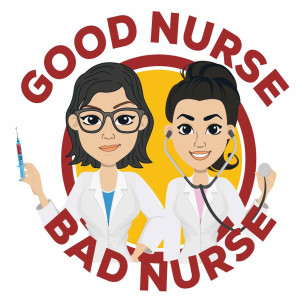
Good Nurse Bad Nurse


The Relaxback UK Show

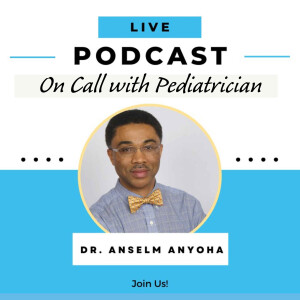
On Call With Dr. Anselm Anyoha

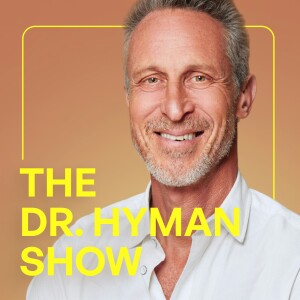
The Dr. Hyman Show

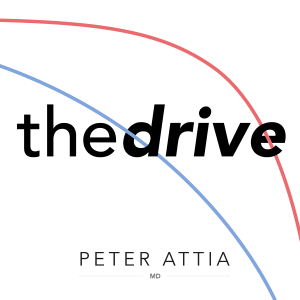
The Peter Attia Drive

- Privacy Policy
- Cookie Policy
- Terms of Use
- Consent Preferences
- Copyright © 2015-2024 Podbean.com

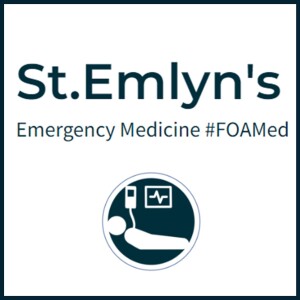


 iOS
iOS Android
Android